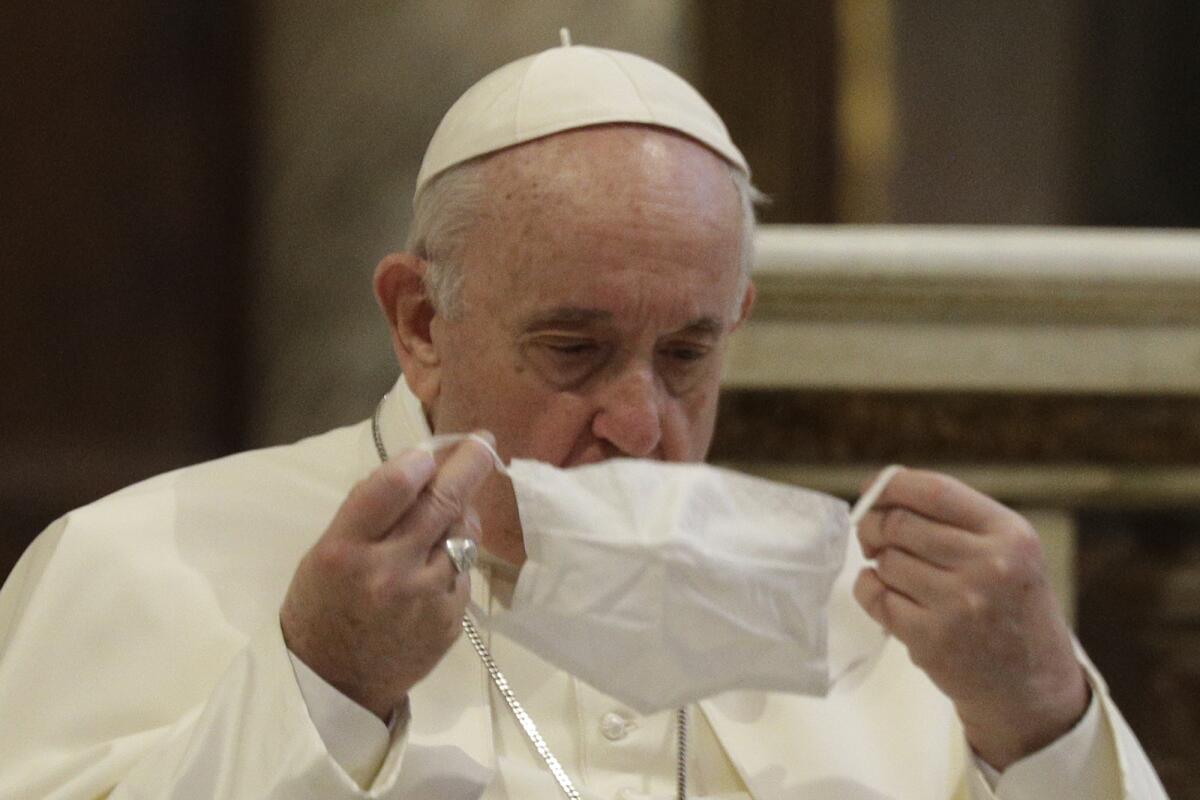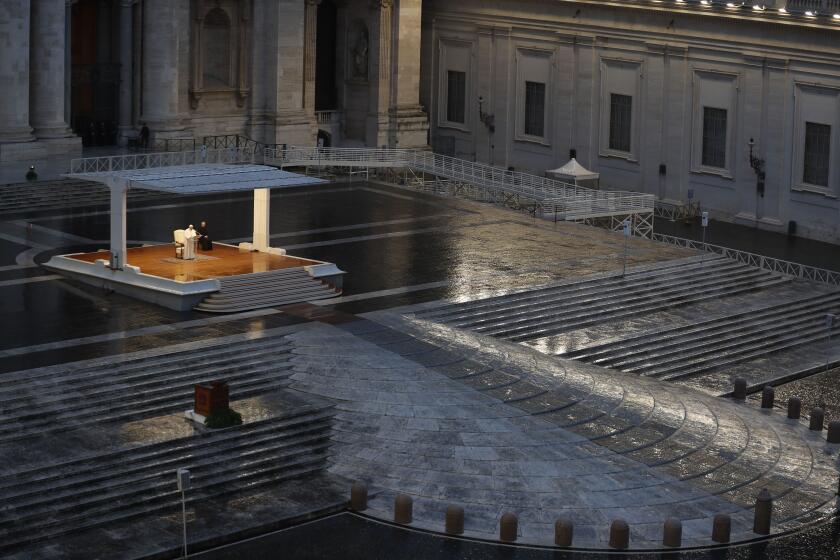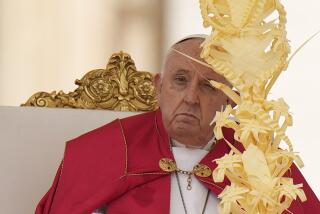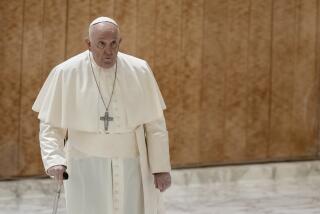Pope Francis unmasked: Vatican’s COVID-19 advisors say they’re ‘working on that’

- Share via
ROME — Pope Francis’ decision to forgo wearing a mask has been noticed with some concern by the commission of Vatican experts he appointed to help chart the Roman Catholic Church’s path through the COVID-19 pandemic and its aftermath.
The Rev. Augusto Zampini, one of the key members of the pope’s coronavirus commission, acknowledged Tuesday that, at age 83 and with part of his lung removed after an illness in his youth, Francis would be at high risk for complications if he were to contract COVID-19.
“He has started to use the mask now,” Zampini said in response to reporters’ questions. “And I hope he will use it in the general audiences, when he is close to the people. If you’re in an open space, we know that it’s different. But, well, we are working on that.”
Francis has courted some criticism for declining to wear a mask when indoors, even though Vatican regulations call for masks both inside and outside when social distancing cannot be guaranteed. While Francis’ lung condition could help explain his decision to forgo the mask, as a way to breathe without impediment, he donned one for more than two hours last week when he presided over an indoor and outdoor ecumenical prayer service in downtown Rome.
Yet the following day, Francis went maskless during his indoor general audience in the Vatican auditorium, including when he shook hands with a handful of similarly maskless bishops and leaned in to speak privately to each one. On Saturday, he met with Spanish Prime Minister Pedro Sánchez, who arrived wearing a mask but took it off for the audience in the pope’s library.
Photos of the maskless leaders caused a mild stir in Spain over the weekend, but the prime minister’s office dismissed it by saying that the delegation was following Vatican protocol. Spain last week became the first country in Western Europe to have logged more than 1 million confirmed coronavirus cases.
During the coronavirus outbreak, Pope Francis is deprived of the crowds, foreign travel and visits to poor neighborhoods that have defined his papacy.
The Vatican has declined to respond officially to questions about Francis and masks.
Zampini said the recent rise in infections in the tiny city-state has commission members and the Vatican as a whole concerned. Thirteen Swiss Guards and a resident of the quarters where Francis lives have recently tested positive.
“We are very worried,” Zampini said, noting that the Vatican has strong regulations about keeping social distance and washing hands within the territory. “We have all protocols in place, but still we have cases.”
However, he said the infections have helped the Vatican understand better the danger that the world at large faces from the coronavirus.
The commission of experts is working to meet the current needs of the Catholic Church around the world with concrete acts of assistance, while also developing policy recommendations for how governments and institutions can rethink global economic, environmental, social, healthcare and other structures to be more equitable and sustainable.
More to Read
Sign up for Essential California
The most important California stories and recommendations in your inbox every morning.
You may occasionally receive promotional content from the Los Angeles Times.











